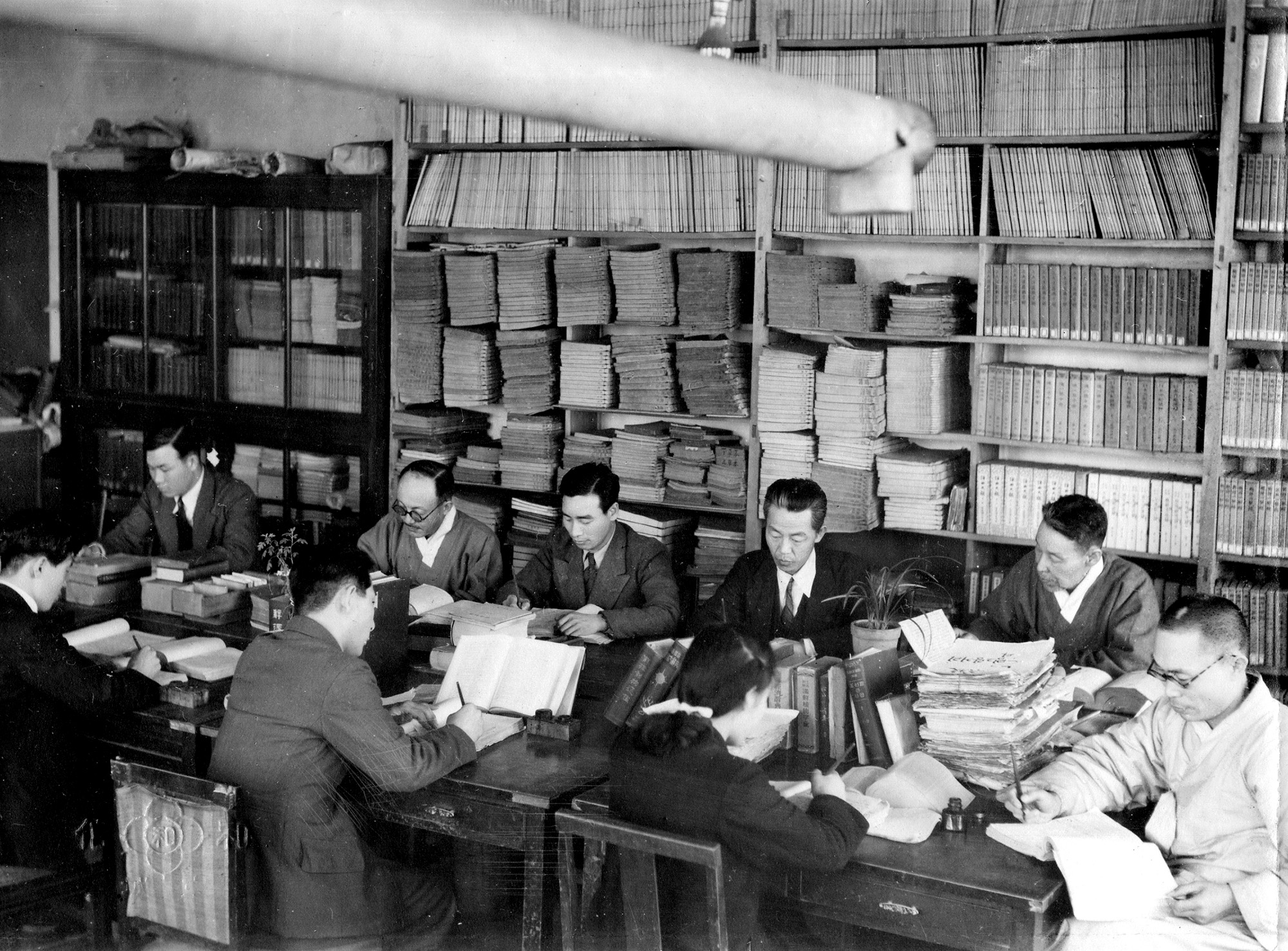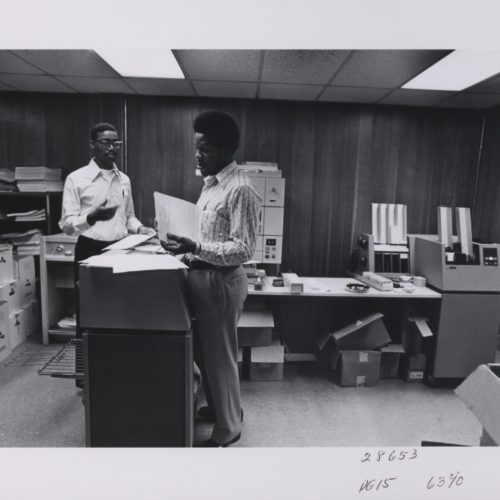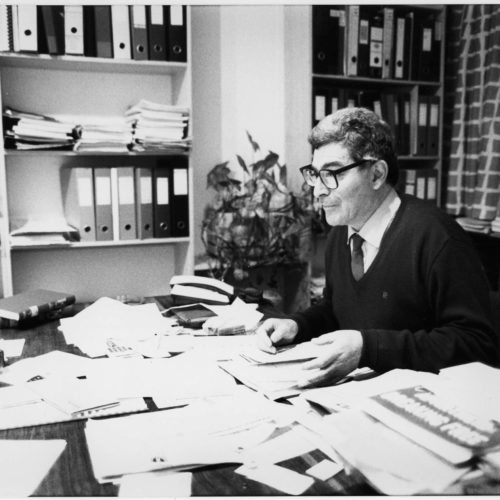Our New Research series highlights recently published reports submitted by scholars who have received stipends to conduct research in the archives of RAC. In this set of reports, the authors have used the records of the Ford Foundation, Rockefeller Foundation, and the Social Science Research Council.
“Paul Ylvisaker, ‘Indigenous Leadership,’ and the Origins of Community Action” by Sam Klug
In “Paul Ylvisaker, ‘Indigenous Leadership,’ and the Origins of Community Action,” Sam Klug analyzes concepts that helped guide both the Ford Foundation and the Lyndon Johnson administration in addressing pressing urban issues. His report focuses on Paul Ylvisaker, who was a central figure in what the Ford Foundation called its “Gray Areas” program. Dr. Klug argues that Ylvisaker drew on his earlier involvement in the Foundation’s work in urban planning in Calcutta (now Kolkata) to formulate a belief that cultivating “indigenous leadership” was a critical component to urban policy programs.
This story illuminates one way in which debates about community action, antipoverty policy, and urban politics in the early to mid-1960s were conditioned by Americans’ competing visions of decolonization and the postcolonial world. He also notes that community action is a bottom-up process and, ultimately, funding institutions, such as the Ford Foundation, were looking for “indigenous leaders” whose tactics and political stances were deemed acceptable to them.
Sam Klug recently completed his Ph.D. in History at Harvard University and has been teaching courses related to race and class inequality at Columbia University and George Mason University.
“American Philanthropy and Post-1956 Hungarian Refugee Aid” by Tamás Scheibner
Tamás Scheibner is an assistant professor at the Institute of Hungarian Literature and Cultural Studies of Eötvös Loránd University in Budapest. His research report, “American Philanthropy and Post-1956 Hungarian Refugee Aid” looks at the response of the Rockefeller and Ford Foundations to the humanitarian crisis resulting from the 1956 Hungarian revolt against Soviet domination.
As sometimes happens when exploring archival records, Dr. Scheibner changed his study plans as he proceeded to review material on Cold War-era Hungary in the foundations’ archives. His initial agenda was to look at how philanthropies collaborated across the Iron Curtain to support programs in the humanities. Dr. Scheibner quickly realized that there was a largely untold story about the humanitarian aid provided by the Ford Foundation and the Rockefeller Foundation to help the refugees who had fled Hungary.
These refugees did not fit the “classic” definition of displaced or impoverished masses that often triggers philanthropic action. Instead, the refugees were largely composed of intellectuals, students, and artists who saw the revolt as an opportunity to escape the intellectual and professional restrictions (and persecutions) of communist rule. Both foundations used their networks and a series of intermediaries to aid these refugees who had arrived in Austria and Yugoslavia, two countries bordering Hungary. By highlighting the activities and financial commitments of these two philanthropies in assisting the Hungarian refugees, Tamás Scheibner is confident that this report (and his future studies on this topic) will help fill a critical gap in the current historiography about the response to the crisis.
“Foundations and Networks of Korean Studies, 1960s–1970s” by In-soo Kim
In-soo Kim’s report, “Foundations and Networks of Korean Studies, 1960s–1970s: Focusing on the Activities of the Council on Exchange with Asian Institutions (CEAI), the Asiatic Research Center (ARC), and the Joint Committee on Korean Studies (JCKS),” takes a fresh look at the birth of an academic field. He observes that historians have typically argued that the formation of Korean studies was, in essence, a US-created field that attempted to strengthen understanding of a key arena of the Cold War.
While recognizing the active US role in the foundation of this area of study, Dr. Kim maintains that the picture was much more complex. Researching in the records of the Social Science Research Council, the Rockefeller Foundation, and the Ford Foundation, he traces the philanthropic support provided to a series of Korean studies-related institutions, organizations, and intellectual networks. This funding was essential in bringing Korean studies out of the shadow of the fields of Chinese studies and Japanese studies and strengthening its academic legitimacy. These grants also nurtured the connections between scholars of the field in the US and Korea, which reinforces for Dr. Kim the concept that the modern creation of the field was a “co-production.”
In-soo Kim is currently a member of the Academy of Korean Studies.
“The Franco-American Race for the Yellow Fever Vaccine” by Aro Velmet
Aro Velmet is an assistant professor of history at the University of Southern California. He specializes in the study of modern European history, imperialism, and science, technology, and medicine.
Dr. Velmet’s research report, “The Franco-American Race for the Yellow Fever Vaccine,” highlights an interesting episode in the history of the search to produce an answer to the scourge of yellow fever. He notes that this effort was characterized by alternating periods of collaboration and intense competition between scientists funded by France’s Pasteur Institute and the Rockefeller Foundation.
This rivalry produced intense, goal-oriented vaccine research, but it also raised nationalistic sensibilities, particularly as French researchers utilized their colonial networks in Africa, and RF research benefitted from connections to British colonial administration there. Professor Velmet points out that these research efforts in the 1920s and 1930s ultimately produced the Dakar and 17-D vaccines that subsequently successfully battled yellow fever. However, this accomplishment was accompanied by a difficult legacy, as ethical concerns were raised both then and now about the terms for human testing and side effects of the different inoculation strains.
About the RAC Research Stipend Program
The Rockefeller Archive Center offers a competitive research stipend program that provides individuals up to $5,000 for reimbursement of travel and accommodation expenses. Learn more on our Research Stipend page



